The loss of the Crimean War would signal the end of serfs in Russia and sweeping changes to the Russian economy.
All around the world, traditional rural societies took note. 19th-century Russia thought of herself as a European power. But she was in her way just as trapped in the past as China.
22 million Russians were serfs owned by aristocratic landlords. Like slaves, serfs were property and could be ordered to do any kind of work. Many suffered physical and sexual abuse. The system created a stagnant economy based on old-fashioned agriculture.
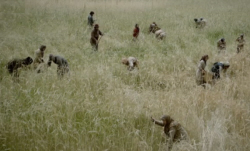
But now, this huge, proud nation came up against industrialised Britain and her ally, France, in the Crimean War. And, fighting right on her doorstep, lost.
But change was in the air. After the humiliating defeat of the Crimean War, the new tsar, the reforming Alexander II, realised that if Russia was going to compete against the industrial powers in the West, she’d have to sweep away the serf economy.
Easier said than done. Russia’s nobility and landowners were going to fight hard to hang onto their power and their property.
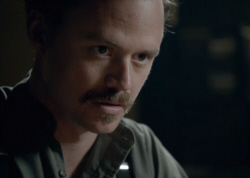
In many ways, Russia’s fate was now in the hands of its nobility. And in the spring of 1853, one young aristocratic landowner was gambling with his fellow Army officers. The stakes were high. The young count had already gambled away entire villages he owned and the serfs who lived in them. Now he’d lost the house where he’d been born. His name was Leo Tolstoy. He’d go on to become a titan of Russian literature, the author of War and Peace. But he’d also become a key player in the political drama gripping Russia - the fate to throw off serfdom.
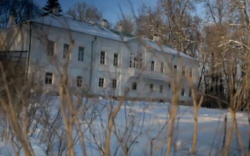
Leo Tolstoy was only 18 when he inherited the estate of Yasnaya Polyana, which means “bright meadow”. It was vast and included 11 villages and 200 serfs. This was a world in which entire villages and the people who lived in them could be won or lost on the toss of a coin. But Tolstoy was different.
The guilt so tore him apart that he came to believe that not only he had to change, so did Russia.
Was there a different path between brutal industrialisation and rural tyranny? Finding one became Tolstoy’s mission. He returned to what was left of his estate and, dressed as a peasant, worked alongside his serfs. In truth, he was a pretty rotten farmer, and to start with, there must have been a bit of rural sniggering behind his Lordship’s back.
Leo Tolstoy frees the serfs
But Tolstoy was a dedicated, even reckless reformer. Tolstoy decided to free his serfs, which meant giving them or selling them land as well, because a land was worth nothing without the serfs, and the serfs would starve without the land. So he offered them very generous terms - 12 acres apiece, some of it free, some of it very cheap. Noble, generous Count Tolstoy.
The serfs didn’t see it like that. They’d already heard rumours that the tsar was going to give them their land and liberty for nothing. The count must be trying to swindle them. So they looked at his offer and, to his amazement and horror, said “No, thanks”.
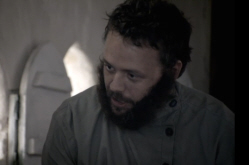
But Tolstoy wasn’t easily discouraged. He believed that Russia was never going to move forward while most of its people couldn’t read or write. So, in October 1859, set up a school on his estate to educate young serfs.
Quite a few of whom, it has to be said, were his own illegitimate children. Within three years, Tolstoy had opened 21 schools in the local area.
Tolstoy was shunned by infuriated local landowners. All round the world, it was the land owning class with their privileges and traditions who’d be the most threatened by change. And in Russia they fought a formidable rearguard action against the Tsar’s reforms. It was one successful enough to sabotage them.
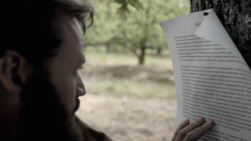
When, on 3 March, 1861, the detailed plan was finally announced, it turned out the serfs would be free in name, but burdened by debts and many rules. It was a tragic missed opportunity. Had the Tsar had pulled this off, Russian history would have been very different. And surely happier.
There was a great wave of anger and disappointment. There were nearly 2,000 serf revolts, some of which had to be put down by troops. Tolstoy himself freed all his serfs and asked for no payment, but across Russia, most peasants, though now technically free, still had to pay for their land, they had to ask permission to travel and they could still be beaten.
Alexander’s reforms had failed. Eventually many of the serfs drifted to the cities, where they would eventually become the foot soldiers for a revolution which would sweep away old Russia.
